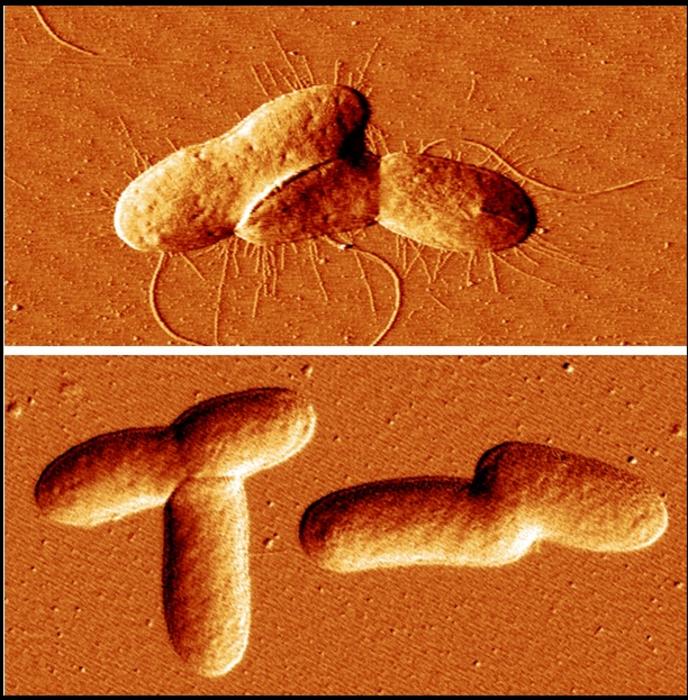
In the realms of microbiology and plant sciences, significant breakthroughs often offer new insights into longstanding issues within healthcare and industry. Recently, researchers at the University of California, Riverside, have unveiled a fascinating interaction between plant-produced metabolites and bacterial behavior, particularly concerning biofilm formation, which has serious implications in both medical and industrial fields. The study, led by distinguished professor Katayoon Dehesh and project scientist Jingzhe Guo, highlights the complex relationships between plant physiology and microbial ecology, shedding light on a novel method of disrupting bacteria’s ability to create biofilms.
Biofilms, which are essentially colonies of microorganisms that adhere to surfaces and are encased in a protective layer, pose considerable challenges in clinical settings. They thrive on medical devices like catheters and implants, creating a robust barricade against antibiotics. This makes infections particularly arduous to treat, as the microbes within these biofilms exhibit a tenacity and resistance that complicates routine medical procedures. For example, biofilm infections can lead to chronic illnesses, prolonged hospital stays, and even increased mortality rates. In industrial contexts, biofilms are equally problematic, leading to blockages in pipes, costly equipment failures, and contamination of food supplies.
The breakthrough in this research pivots around a metabolite known as MEcPP, which is produced by plants under stress. When a plant is damaged or stressed, it accumulates this compound, which plays a vital role in its ability to respond and adapt to adverse environmental conditions. Interestingly, the researchers discovered that MEcPP has an inhibitory effect on biofilm formation in bacteria such as E. coli by hampering their attachment abilities. This finding is particularly significant as it marks a convergence point between the biological responses of plants and the operational mechanisms of bacterial pathogens.
During their investigation, the research team unraveled the mechanisms by which MEcPP disrupts bacterial attachment. Fimbriae, hair-like structures on bacteria, are essential for anchoring themselves to surfaces and initiating biofilm formation. The ability of bacteria to create a biofilm hinges on their deposition on a surface via these fimbriae. Without them, the process of biofilm formation is significantly hindered, making MEcPP’s capability to disrupt this attachment phase a potent tool for preventing biofilm establishment.
Furthermore, the study identified a critical gene termed fimE. This gene acts as a molecular switch influencing fimbriae production. By enhancing the activity of fimE, MEcPP increases its expression, effectively curbing the ability of bacteria to produce fimbriae. The implications of this discovery extend beyond just basic microbiology; they open doors to practical applications in healthcare and industry. The ability to mitigate biofilm formation could result in more efficient medical devices, reduced incidences of infections, and improved environmental hygiene in food processing and other industrial sectors.
Beyond the immediate benefits in infection control and industrial maintenance, the broader implications of the study suggest a potential rethinking of how we approach biofilms. Traditionally, the management of biofilms has relied heavily on harsh chemicals and mechanical cleaning methods, which are not only potentially harmful to the environment but can also be economically burdensome. The innovative use of a naturally occurring plant metabolite presents a more sustainable solution to biofilm management, integrating biochemistry with practical applications.
This finding showcases the interconnectedness of various biological disciplines, illustrating how an understanding of plant mechanisms can lead to advancements in combating bacterial-related challenges. It also highlights the growing field of biotechnological applications derived from natural compounds, emphasizing eco-friendly practices that can replace synthetic alternatives.
Overall, UC Riverside’s research illuminates a unique approach to biofilm prevention with MEcPP at its core, revealing possibilities for better hygiene and infection control in diverse settings. The implications of this research resonate across industries—ranging from healthcare to food production—each of which grapples with the ramifications of biofilm formation. The potential for improved strategies in these areas is immense, suggesting a transformative impact on how we manage microbial threats going forward.
As this study paves the way for further exploration of natural compounds in the fight against biofilms and bacterial infections, it invites a shift in paradigms not just within microbiological circles but also within public health narratives. Researchers and practitioners alike may soon leverage these insights to enhance safety and efficacy in medical procedures while simultaneously promoting ecological sustainability.
Ultimately, the findings from UC Riverside represent a pioneering spirit in scientific inquiry that not only addresses immediate concerns but also envisions a future in which natural solutions hold the key to complex problems. Such innovations not only rekindle hope for combating persistent infections but also inspire a deeper appreciation of the natural world in the ongoing battle against bacterial threats.
Subject of Research: The effects of the plant metabolite MEcPP on biofilm formation in bacteria
Article Title: An evolutionarily conserved metabolite inhibits biofilm formation in Escherichia coli K-12
News Publication Date: 21-Nov-2024
Web References: Nature Communications Article
References: [Not provided]
Image Credits: Credit: Jingzhe Guo/UCR
Keywords: Biofilms, MEcPP, E. coli, fimbriae, biofilm prevention, medical devices, plant metabolites, sustainability, microbial infections, industrial applications, ecological solutions.





